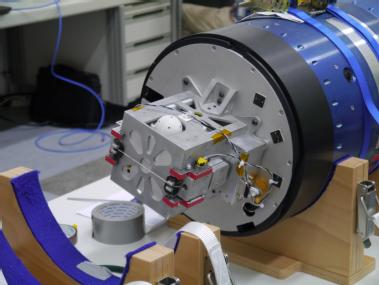Overview
|
The WUSAT Programme has developed out of a multi-disciplinary, 4th Year MEng project based in the School of Engineering, running since 2006 under the leadership of Dr Bill Crofts, and now jointly with Space Systems Engineer, Prof Julia Hunter-Anderson. The multi-disciplinary nature of the School of Engineering (mechanical, electrical and electronic, systems, computer systems and manufacturing engineering, etc) has enabled real-world hands-on educational space projects designed for ‘launch’. |
 |
We take a systems engineering driven approach to our developments to enable sufficiently high quality products and ensure a smooth handover to the next student team for multi-year projects.
Integral to our projects' success has been a wide collaboration with industry, with over 40 companies since 2006, providing finance, equipment, components, training, internships, software, and technical assistance. Find out more about our Partners, past and present.
Extensive outreach activities promote WUSAT, the School of Engineering, the University of Warwick as a whole, the European Space Agency (ESA), the UK Space Agency (UKSA), and our partner companies, whilst encouraging students of all ages to study STEM subjects. Our latest project, WUSAT-3, has also engaged a wider audience (gardeners, ecologists, beekeepers etc!) in the use of Space to help solve real world problems.
We have an alumni group consisting of over 100 former WUSAT engineering students, many of whom are now working in industry/government or have progressed to study engineering at PhD level. We also collaborate with the Warwick Aerospace student society (part of UKSEDS) to increase our outreach to non-engineering students and provide the opportunity to support the WUSAT Programme.
WUSAT is now also a key member of a Midlands Space Group, formed in 2018 and facilitated by Midlands Innovation UK. The group comprises a number of Midlands Universities with Space technology capability (Leicester, Warwick, Birmingham, Nottingham, Cranfield, Loughborough, Aston) and aims to build a strong Space research and development capability centred around a Space Park Leicester which is currently in development.
With all our projects we are keen to understand the needs of potential end-user groups in order to develop and maintain robust user and engineering requirements. This also gives our students the opportunity to understand the importance of this early design phase.
In order to capitalise on this experience and the University of Warwick’s engineering excellence in general, a Space Technology and Mission Research Group is being set up. It comprises over 20 academic staff who offer a range of research specialisms applicable to the Space Industry. We are also keen to consider technology spin-offs in innovative markets.
